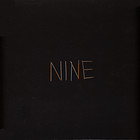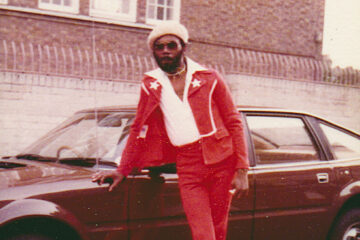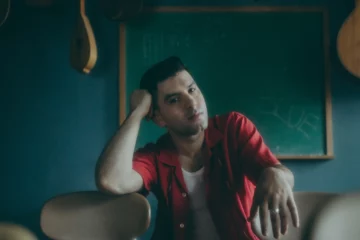To portray Sault is a difficult feat in two respects. For one thing, the band maintains silence. Rumours are circulating that Cleopatra Nikolic (aka Cleo Sol), Melisa Young (aka Kid Sister) and Dean Josiah Cover (aka Inflo) are the three musicians behind the project. However, this has neither been confirmed nor denied. They don’t give interviews. When asked, Nathan Burke, head of their label Forever Living Originals, prefers to point out that Sault let their music do the talking. And since this year at the latest, the band has solely been talking about the Black experience and identity in times of Black Lives Matter and continuing police violence. So to write about Sault is to write about being Black.
The fact that I, as a white male and therefore massively privileged person, am making this attempt, contains a fundamental problem in itself. My attempt to place the copy in hands that really know what they are writing about failed because the editorial team and its authors are themselves 100% white. So should I just forgot it? That won’t work either. Sault are too important a force for that.
Black Is
We all know black is beautiful
You know, well now you do
Black is excellent too
In me, in you
Black is shiny and new
Black is older than earth
All at the same damn time
Black is sweet
Black is ours
Black is love
Black is God
God is us
Not only are Sault musically incredibly complex, witty and appealing. Their four albums to date in just two years dance blithely through the musical history of the Black Diaspora. Motown soul, funk, spoken word, R&B, disco, hip-hop, afrobeat, jazz, gospel and samba-enredo flow effortlessly into one another. Time and again, they play with set pieces that somehow seem familiar, yet elude precise classification. Sampling and allusions as a respectful reminder of the rich Black culture and tradition of music as a spiritual healing moment. Oral history in 2020. But also sampling in the form of a ludic, self-confident appropriation for their own generation, their language and reality. Beyoncé recently created something similar with »The Lion King: The Gift« and the complementary visual album film »Black Is King«.
Sault’s songs are self-assertion, warning and declaration of war at the same time.
Sault, like Beyoncé, are also bursting with confidence in their quest for and in the midst of the long overdue re-possession of their Black identity and history. They celebrate being independently Black. Confident and self-loving. Black identity that arises from itself. Without reference to whiteness. Without limiting oneself to the past existence of being enslaved and the contemporary existence of constant discrimination. It is a Black identity that is strong, intelligent, beautiful and human. But where Beyoncé almost hermetically celebrates pan-African spirituality and evokes the Black American Dream, to which she can proudly count herself, Sault carry the struggle into the world from within. Sault shout it out in the streets.
Street Fighter
They can’t stop us | Nothing like us
It’s not over | Till they hear us now
We gon’ fight it whether you like it | Keep playing the music loud
God gonna let me down, no | He won’t ever stop, no
We are survivors | We are the titans
We’re united | We have real war scars
They’re not gonna come and save us | We have to fight fearless
Sister, wipe your blood | They’re not gonna conquer us
Feel the resistance | Feel my resistance
My rebel spirit and guidance | You have no chance
You took a life | You have to pay the price
Disturb, put up your fist and stand up | And scream out until they hear us
Street Fighter | Street Fighter
Street Fighter | Street Fighter
Street Fighter | Street Fighter…
Sault’s uplifting and gentle music serves as a canvas for the long overdue revolution – the overthrow of racist relations. Their songs are not requests or wishes, not dreams of a better world. Sault have simply come forward to demand their rights. This is probably why the albums have no blues on them, which forms part of the foundation of Black music history. The time for melancholy is over. Sault’s songs are self-assertion, warning and declaration of war at the same time. Fearless and confident. Sometimes they are reduced to single cries. Lyrics that will become riot songs and echo as chants in the streets.
Especially in the context of a racism that is currently and definitely emerging from the cellars of the social centre, Sault are one of the most important, radical and powerful projects of our time.













